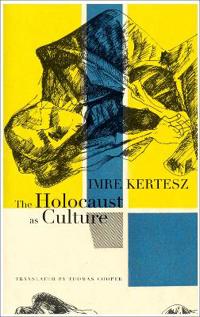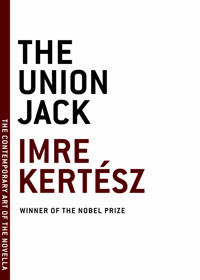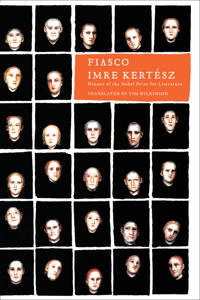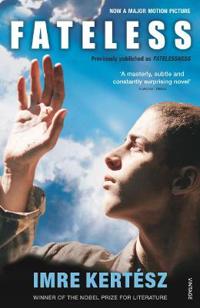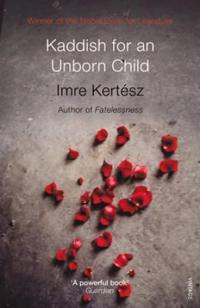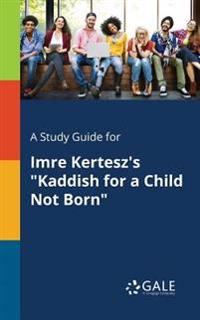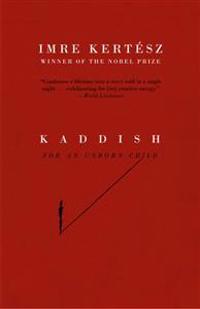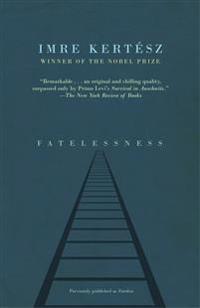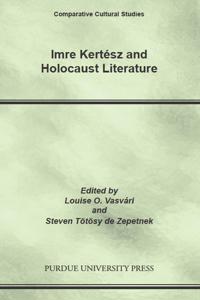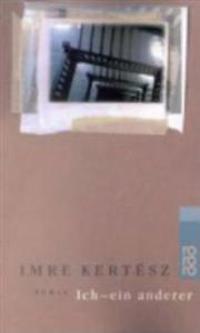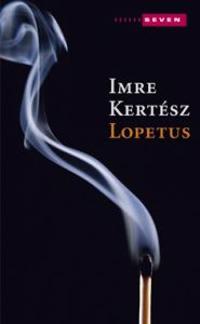The Holocaust as Culture (Inbunden)
avImre Kertesz, Thomas Cooper, Imre Kertesz
ISBN: 9780857420220 - UTGIVEN: 201206Hungarian Imre Kertesz was awarded the Nobel Prize in Literature in 2002 for "writing that upholds the fragile experience of the individual against the barbaric arbitrariness of history." His conversation with literary historian Thomas Cooper presented here speaks specifically to this relationship b[...]
The Union Jack (Pocket)
avImre Kertesz, Tim (TRN) Wilkinson, Imre Kertesz
ISBN: 9781933633879 - UTGIVEN: 2010-01Fateless (Storpocket)
avImre Kertesz
ISBN: 9780099502524 - UTGIVEN: 2006-04Gyuri, a fourteen-year-old Hungarian Jew, gets the day off school to witness his father signing over the family timber business to the firm's bookkeeper - his final business transaction before being sent to a labour camp. Two months after saying goodbye to his father, Gyuri finds himself assigned to[...]
Kaddish for an Unborn Child (Häftad)
avImre Kertesz
ISBN: 9780099548935 - UTGIVEN: 2010-09Dealing with the Holocaust, this title takes readers on a journey through the author's life, from his childhood to Auschwitz to his failed marriage.[...]
A Study Guide for Imre Kertesz's Kaddish for a Child Not Born (häftad)
ISBN: 9781375382915 - UTGIVEN: 2017-07Kaddish for an Unborn Child (Häftad)
avImre Kertesz
ISBN: 9781400078622 - UTGIVEN: 200408The first word in this mesmerizing novel by the winner of the Nobel Prize for Literature is "No." It is how the novel's narrator, a middle-aged Hungarian-Jewish writer, answers an acquaintance who asks him if he has a child. It is the answer he gave his wife (now ex-wife) years earlier when she told[...]
Fatelessness (Häftad)
avImre Kertesz
ISBN: 9781400078639 - UTGIVEN: 200408At the age of 14 Georg Koves is plucked from his home in a Jewish section of Budapest and without any particular malice, placed on a train to Auschwitz. He does not understand the reason for his fate. He doesn't particularly think of himself as Jewish. And his fellow prisoners, who decry his lack of[...]
Ich, ein anderer (Pocket)
avImre Kertesz
ISBN: 9783499225734 - UTGIVEN: 1999-10In Reisebildern aus Tel Aviv, Berlin, Leipzig und Wien, in Erinnerungsmomenten einer fast entrückten Kindheit, in erzählten und geträumten Geschichten, in Wahrnehmungen, die ins traumatisch Visionäre oder in die glückhafte Epiphanie umkippen, hält Imre Kert?sz einen existentiellen Epochenwechs[...]
Lopetus (Pocket)
avImre Kertesz
ISBN: 9789511222095 - UTGIVEN: 2007Unkarilaisen nobelistin neliosaisen pääteoksen päätös."Lopetus on puhdasta metafysiikkaa ja eksistentialismia. Se pohtii pahan ja hyvän olemusta, vapauden illuusiota, minuuden, kielen ja kohtalon kadottamista." - Savon Sanomat[...]

